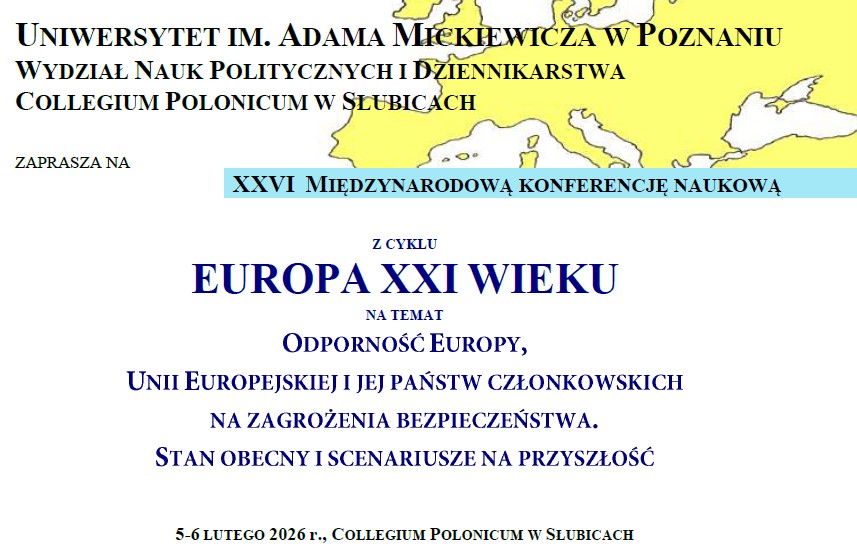Zapraszamy do udziału w XXVI Międzynarodowej Konferencji Naukowej “Europa XXI wieku”.
Adam Mickiewicz University, Poznań Faculty of Political Science and Journalism Collegium Polonicum in Słubice cordially invite you to the 26th International Scientific Conference in the series EUROPE OF THE 21ST CENTURY on the topic of The Resilience of Europe, the European Union, and Its Member States to Security Threats. The Current State and Future Scenarios … Read more

